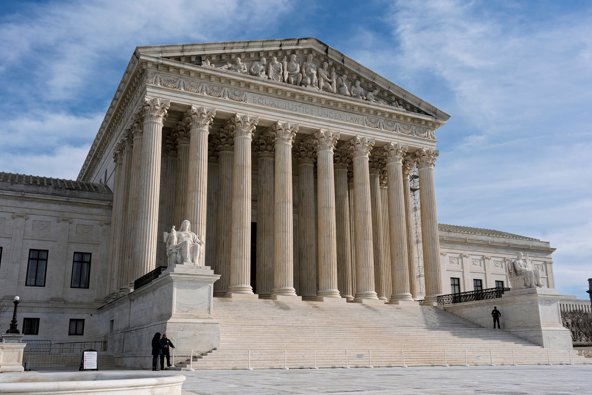
Supreme Court Backs Trump on Migrant Parole
The Supreme Court allows Trump to end legal protections for 500,000 migrants from Cuba, Nicaragua, and Venezuela.
High Court Greenlights TPS Revocation for Hundreds of Thousands
The U.S. Supreme Court on Friday issued an emergency order staying a lower court decision that had blocked the Trump administration from revoking Temporary Protected Status (TPS) for approximately 500,000 foreign nationals. The order marks a significant legal win for President Donald Trump as he accelerates immigration reforms in his second term.
The TPS program provides legal residency and work authorization for individuals from countries experiencing armed conflict, natural disasters, or other extraordinary conditions. The migrants affected by this decision are primarily from Cuba, Nicaragua, and Venezuela.
Though unsigned, the Court’s decision allows the administration to proceed with deportations while legal challenges continue. Justices Sonia Sotomayor and Ketanji Brown Jackson issued a strong dissent, criticizing the move as premature and harmful to those awaiting resolution of their claims.
“The court plainly botched its assessment,” Justice Jackson wrote, arguing that the decision exposes migrants to “devastating consequences” and disrupts lives without adequate legal resolution. “Court-ordered stays exist to minimize — not maximize — harm to litigating parties,” she added.
Trump Administration Cites National Interest
The Trump administration first moved to revoke TPS for select groups earlier this year. In February, Department of Homeland Security Secretary Kristi Noem initiated termination of protections for certain Venezuelan nationals, stating the program no longer aligned with national interest priorities.
Solicitor General John Sauer defended the administration’s position before the Court, asserting that immigration policy rests firmly within the executive branch’s discretion. Sauer argued that lower court rulings, including one by U.S. District Judge Edward Chen, amounted to judicial overreach.
“The district court’s reasoning is untenable,” Sauer wrote in the government’s brief. He added that TPS decisions involve “particularly discretionary, sensitive, and foreign-policy-laden judgments.”
The ruling follows an earlier Supreme Court decision this month that permitted the revocation of protected status for 350,000 Venezuelan migrants, setting the stage for broader removals under Trump’s renewed immigration agenda.
Under previous administrations, TPS was typically renewed in 18-month increments. The Biden administration extended the program toward the end of his term, but those protections are now being reversed.
Friday’s decision does not fully resolve the legal questions surrounding TPS revocation but clears the way for immediate enforcement of the administration’s policy. The legal battle is expected to continue in lower courts even as the executive branch begins implementation.
Immigration advocates have warned of humanitarian consequences for those facing removal, particularly as many have established long-term residency and employment in the United States. Critics of the program argue that TPS has been extended well beyond its intended temporary scope.
The Supreme Court’s stay reflects a broader trend of deference to executive immigration authority, reinforcing the administration’s ability to unilaterally reshape policy in line with its enforcement priorities.






